Mali
At the cost of bloody fighting, massacres, and displacement of civilians, the Islamic State group in the Greater Sahara (EIGS) is now in a position of strength in northeastern Mali, which serves as a base for its expansionist aims in Niger and Burkina Faso, according to analysts.
Less than a year after the departure of the last French soldiers from Mali in August 2022, the jihadist organization has extended its control in the immense remote and arid area known as "the three borders", straddling these three Sahelian countries, in committing numerous abuses against civilians.
The capture of Tidermène, a locality located north of Ménaka at the beginning of April, is the last stage of a victorious offensive begun in 2022 against its rivals from the Support Group for Islam and Muslims (GSIM, or Jnim according to the acronym Arab), affiliated with Al-Qaeda , the Malian army and local Tuareg- dominated armed groups in the Ménaka region.
The fighting caused hundreds of civilian deaths, without it being possible to give their precise number as access to the area and to information is difficult.
Only the regional capital Ménaka escapes them, secured by the Malian army, the UN blue helmets (Minusma) as well as armed groups. "The population is traumatized, we can't get out of Ménaka, the road to Gao is blocked", worries a resident to AFP.
An offensive on the city, however, seems unlikely. In Mali as in the northeast of Burkina Faso, the jihadists prefer to isolate the agglomerations and control the rural areas.
ISGS fighters "prowl around 15 km from Ménaka and demand a passage tax for transporters connecting Ménaka to Niger or Gao while extorting cattle from communities", describes a UN source in the city.
Cattle theft is one of the main sources of funding for the organization, which mainly recruits nomadic herders threatened by the development of agricultural crops in a region neglected by the central state.
The rise of cross-border banditry and then jihadist groups in 2012 plunged pastoral communities in the region into a cycle of violence.
In 2018, fighting between the EIGS, set up as the protector of certain marginalized Fulani factions, and local armed groups partly composed of Daoussahaks , a tribe of Tuareg herders, degenerated into massacres of civilians by both sides.
In March 2022, the EIGS decreed a "fatwa" authorizing the blood of the Daoussahaks to be shed and their property to be seized. In the months that followed, its fighters "attacked dozens of villages and massacred large numbers of civilians in the vast regions of northeastern Mali (...) These attacks largely targeted the Daoussahak ethnic group" , according to Human Rights Watch (HRW).
More than 30,000 displaced people have converged over the past year in the town of Ménaka, according to the UN.
"The organization legitimizes the looting of rebellious communities, it mobilizes fighters from all over the region who are attracted by the loot, then they attack en masse and overwhelm the adversary", assures AFP a Malian military source.
In the conquered territories, the populations must submit to the sharia and pay the "zakât", a tax levied in the name of Islam, in exchange for a form of protection.
The organization also capitalizes on a phenomenon of "peasant rebellion against States which have difficulty in fulfilling their security and social contract", underlines General Abou Tarka, president of the High Authority for the consolidation of peace in Niger.
This opportunistic model finds recruits within communities. The jihadists "have a speech that catches. They recruit, strengthen their positions, and gradually radiate", describes Kalla Moutari, former Minister of Defense of Niger.
According to Liam Karr, an analyst for the American Enterprise Institute, the EIGS will use the areas under its control around Ménaka as a " logistical base to increase its operations in the region. The organization is expanding towards northern Mali and the northeast of Burkina Faso where she had lost her footing against Jnim after her defeats in 2020".
This extension also threatens the center of Niger, a wide corridor of about 200 km between Mali and Nigeria where groups of bandits have been raging for decades, particularly in the smuggling of weapons.
"The jihadization of banditry constitutes a growing risk" in this region, alerted the International Crisis Group (ICG) think tank in 2021.
Observers are concerned about a tightening of ties between the ISGS and the West African branch of the Islamic State group, the Iswap active in northeastern Nigeria, via influential cross-border criminal groups.
For Liam Karr, "the simultaneous resurgence of activity by EIGS and Iswap will (...) put Niger's resources to the test by threatening the country on two fronts".



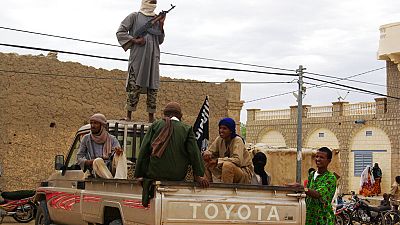



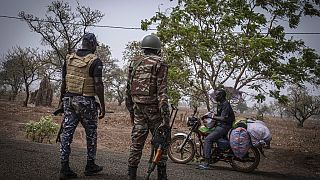
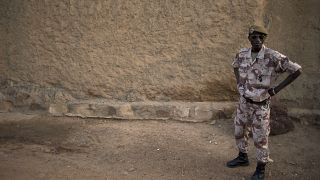
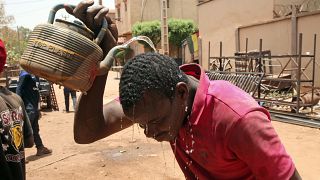
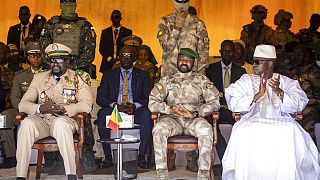
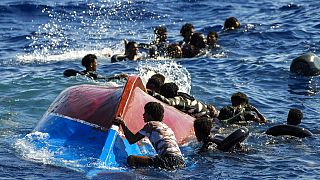

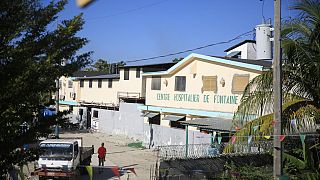
01:05
Six soldiers killed during an operation against bandits in Nigeria
01:01
Protests against U.S. military presence in Niger continue
01:16
Russian forces kill two terror suspects in North Caucasus operation
00:51
Moscow attack: Russia arrests more attack plotters
Go to video
Nigerian parents reunites with their children who were in captivity
Go to video
Burkina Faso's civilian casualties rise